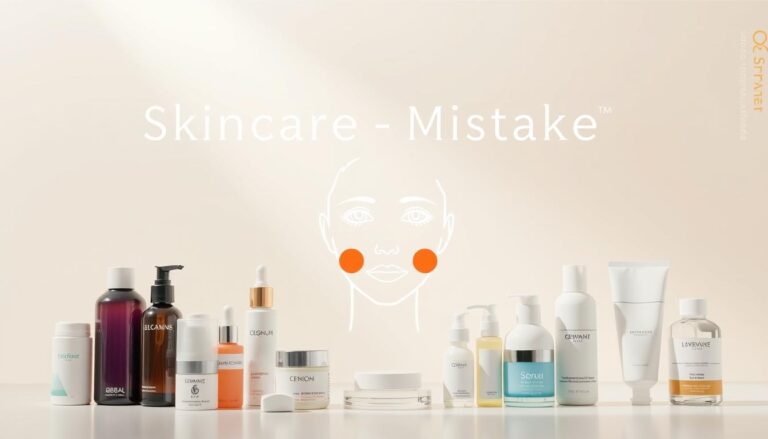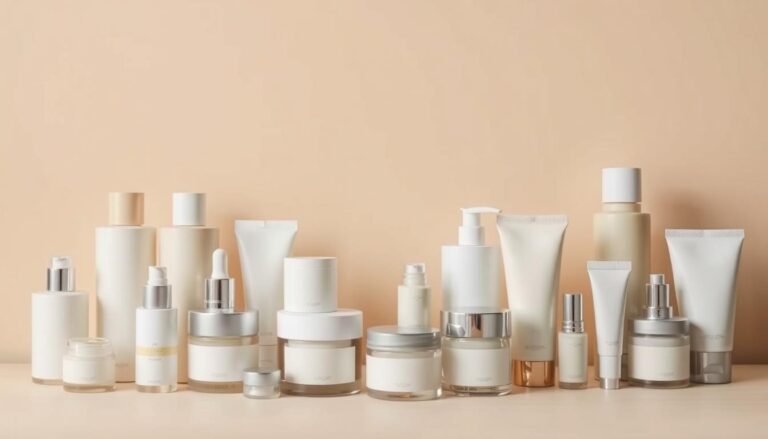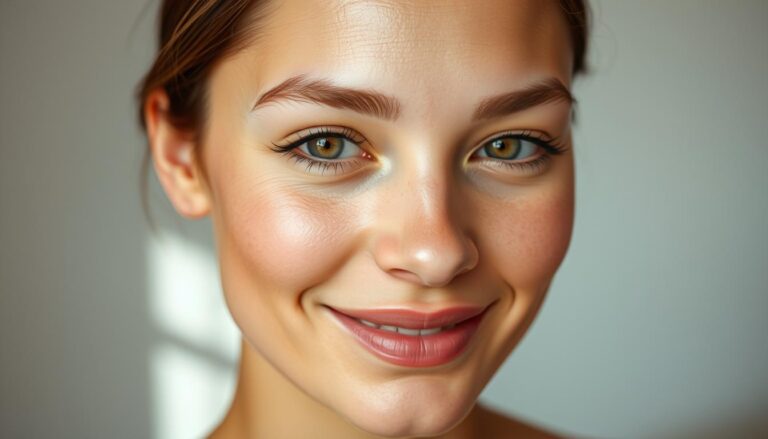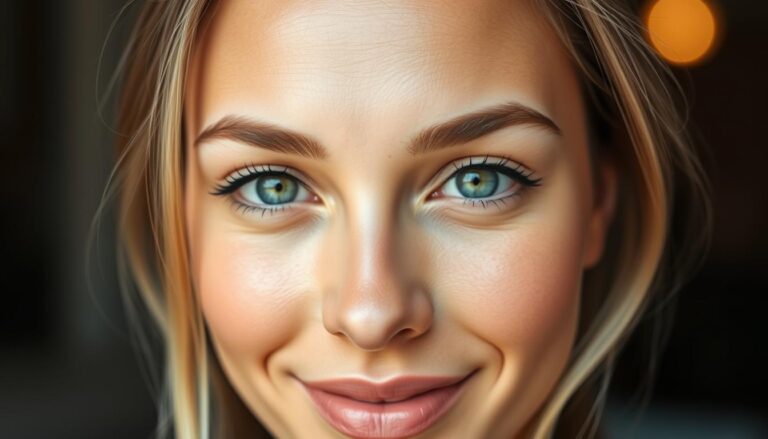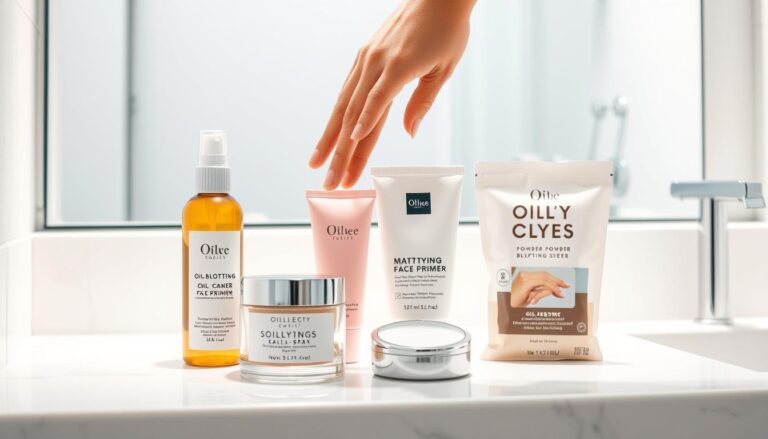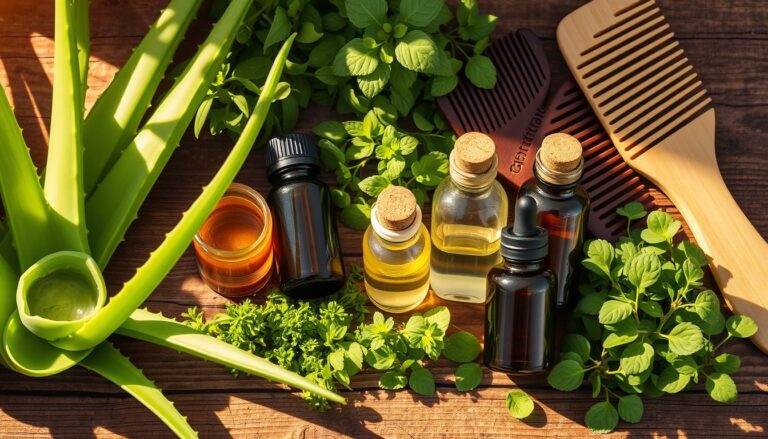Wrinkles: How to Prevent Them in Your 30s and Beyond
Table of Contents
Remember when fine lines seemed like a distant concern? Now, in your 30s, those first subtle wrinkles are here. This is when your anti-aging journey starts.
After 30, your skin’s natural ability to repair itself slows down. This makes preventing wrinkles more important than ever. Collagen production drops, and lines from smiling or frowning become more visible. The choices you make now can greatly affect how your skin ages later.
Understanding wrinkles is not just about looking good. It’s about keeping your skin healthy and strong. Many things, like sun damage and lifestyle, can cause skin to age. But, you can slow down this process with the right skincare and lifestyle choices.
Key Takeaways
- Wrinkle prevention is most effective when started in your 30s
- Collagen production naturally declines with age
- Sun protection is critical for preventing premature aging
- Lifestyle choices directly impact skin health
- Early intervention can significantly slow skin aging
To maintain the safety and beauty of your mouth, you can use this nutritional supplement
Understanding Skin Aging Process
Your skin changes a lot as you get older. Only 20% of aging signs come from your genes. The other 80% comes from how you live and what’s around you. Knowing how skin ages helps you find ways to keep it looking young.
Collagen is very important for young-looking skin. As you get older, your body makes less collagen. By age 20, collagen starts to drop by about 1% every year. This makes your skin thinner and less strong.
The Science Behind Collagen Loss
Collagen is the main protein that keeps your skin strong. When you make less collagen, you see changes:
- Less elastic skin
- More fine lines
- Softer skin
- Slower skin cell growth
Role of Elastin in Skin Firmness
Elastin works with collagen to keep your skin firm. This protein lets your skin bounce back after stretching. As you age, elastin production goes down, leading to sagging and wrinkles.
Natural Aging vs Environmental Factors
Your skin ages in two ways: naturally and because of the environment. Up to 80% of aging signs come from things like the sun, pollution, and how you live. Keeping your skin safe from these factors helps it stay young.
What Causes Premature Wrinkles

Your skin faces many challenges as it ages. Knowing what causes wrinkles early on helps keep it looking young.
Sunlight is a big reason for early wrinkles. UV rays damage collagen and elastin, which keep skin firm. People often see their first wrinkles in their mid-20s, and signs get worse by 30.
- Environmental stressors like pollution
- Chronic stress and lack of sleep
- Poor nutrition
- Smoking
- Dehydration
What you do every day affects your skin. Stress and pollution can make wrinkles appear sooner. After 30, your body makes less collagen, so taking care of your skin is key.
| Aging Factor | Impact on Skin |
|---|---|
| UV Exposure | 73% increase in fine line development |
| Smoking | Accelerates collagen breakdown |
| Poor Diet | Reduces skin elasticity |
To keep your skin healthy, use a consistent skincare routine. Always wear sunscreen with SPF 30 or higher. And, choose a healthy lifestyle to slow down aging.
The Impact of Sun Exposure on Skin Aging
Sun exposure is the main cause of early wrinkles and skin aging. Studies show that 90% of visible aging comes from sun damage. So, protecting your skin from the sun is key to keeping it young.
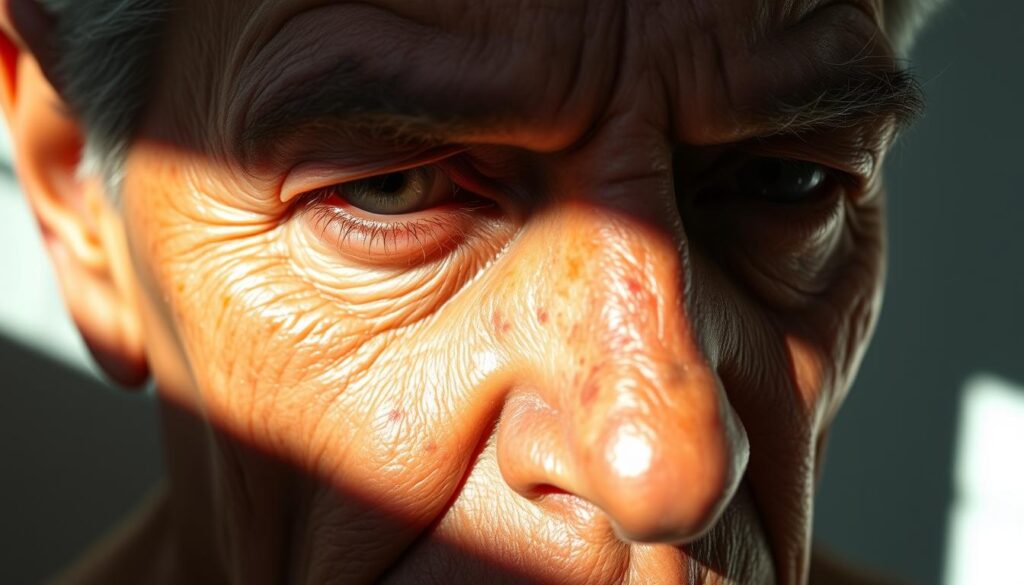
It’s important to know about UV rays to protect your skin. Let’s look at how sun exposure affects your skin’s health and looks.
UVA and UVB Damage Explained
- UVA rays go deep into the skin, causing long-term damage
- UVB rays hit the skin’s surface, causing sunburn right away
- Both types of rays lead to wrinkles and aging
Photoaging Effects
Photoaging happens when UV rays damage collagen and elastin. This speeds up aging, leading to:
- Fine lines and wrinkles
- Uneven skin tone
- Loss of skin elasticity
- Age spots and pigmentation
To maintain the safety and beauty of your mouth, you can use this nutritional supplement
Importance of Daily Sun Protection
| Protection Strategy | Effectiveness |
|---|---|
| Broad-spectrum SPF 30 sunscreen | Blocks 97% of UVB rays |
| Reapplication every 2 hours | Maintains consistent protection |
| Protective clothing | Reduces direct UV exposure |
Protecting your skin from the sun every day is crucial. Use a nickel-sized amount of sunscreen on your face and a shot glass for your body. Staying protected is the best way to fight early aging.
Essential Anti-Aging Ingredients
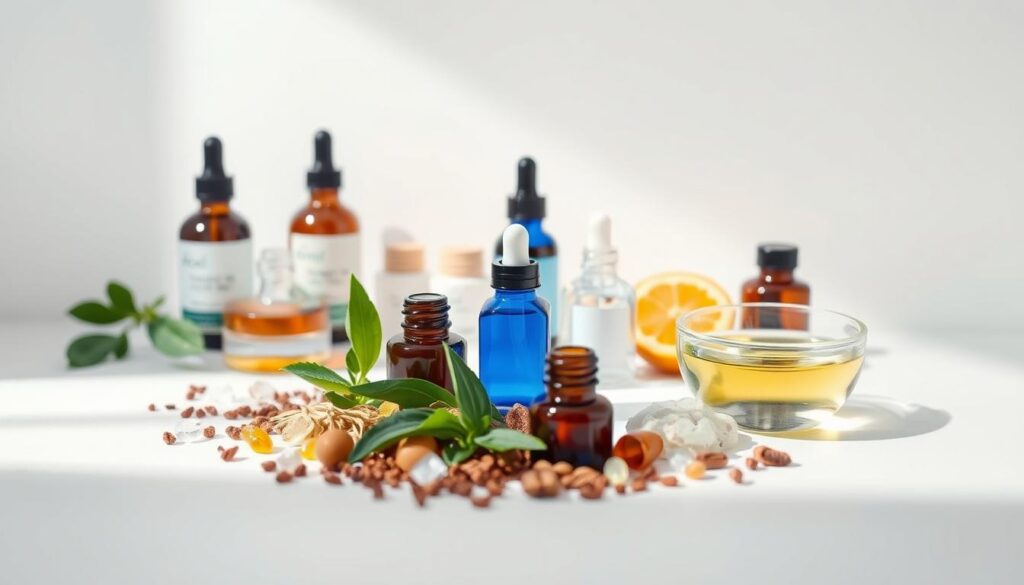
Protecting your skin from aging needs a smart plan with strong ingredients. Retinol is a key player in anti-aging skincare. It helps your skin renew itself.
Retinol comes from vitamin A. It boosts cell turnover and collagen production. Studies over decades show it works well against:
- Fine lines and wrinkles
- Acne prevention
- Hyperpigmentation reduction
- Overall skin texture improvement
Hyaluronic acid is another key ingredient. It can hold up to 1,000 times its weight in water. This gives your skin deep hydration and a plump look. It also reduces fine lines and makes your skin glow.
When using these ingredients, follow these tips:
- Begin with small amounts of retinol to let your skin adjust
- Apply hyaluronic acid first to hydrate before other treatments
- Always use broad-spectrum sunscreen with these ingredients
Don’t forget about vitamin C, peptides, and niacinamide. They also help keep your skin looking young and healthy.
Wrinkles: Types and Prevention Strategies
Knowing the types of wrinkles is key to good anti-aging skincare. Not all wrinkles are the same. Understanding their differences helps you fight fine lines and keep your skin looking young.
Dynamic Wrinkles: Movement-Induced Lines
Dynamic wrinkles come from facial movements and muscle actions. They show up where we often frown or smile, like around the eyes and mouth. Lifestyle choices can influence their growth:
- Sleeping positions can contribute to wrinkle formation
- Facial expressions create repetitive muscle movements
- Stress and emotional patterns affect skin texture
Static Wrinkles: Permanent Skin Changes
Static wrinkles are there even when your face is still. They’re caused by long-term sun damage and collagen loss. To tackle these lines, experts suggest several methods:
- Boost collagen production with targeted skincare
- Protect skin from environmental damage
- Use antioxidant-rich products
Treatment Options for Wrinkle Management
There are many ways to manage wrinkles, from creams to professional treatments:
| Treatment Type | Effectiveness | Duration |
|---|---|---|
| Topical Creams | Moderate | Ongoing |
| Botox Injections | High | 3-6 months |
| Dermal Fillers | Significant | 6-9 months |
| Laser Resurfacing | Substantial | Long-term |
By knowing about different wrinkles and using the right prevention, you can slow down skin aging. This helps keep your skin looking young and fresh.
Lifestyle Factors Affecting Skin Health
Your daily habits are key to keeping your skin elastic and boosting collagen. Knowing how lifestyle choices affect your skin helps you fight aging. This way, you can keep looking young.
Stress is a big deal for your skin. High cortisol levels can harm collagen and skin elasticity. This makes managing stress vital for healthy skin.
- Manage stress through meditation and deep breathing exercises
- Prioritize quality sleep for skin regeneration
- Stay hydrated to support collagen production
What you eat greatly affects your skin. Foods full of antioxidants, lean proteins, and nutrients help fight aging. They keep your skin looking good.
Smoking and drinking too much alcohol speed up aging. These habits cut off blood flow and damage collagen. They also weaken your skin’s defenses.
- Eat a diet rich in fruits and vegetables
- Limit refined sugar and processed foods
- Avoid smoking and excessive alcohol consumption
Exercise is good for your skin. It boosts blood flow and brings oxygen and nutrients to skin cells. This makes your skin healthier and more vibrant.
Your skin reflects your overall lifestyle – nourish it from the inside out.
Advanced Skincare Routine for Your 30s
When you’re in your 30s, you need a smart skincare plan. Your skin starts to show signs of aging. It’s important to use products that help keep your skin looking young and healthy.
Dermatologists say a skincare plan made just for you is key. It should fight aging, protect from the environment, and help your skin renew itself.
Morning Skincare Protocol
- Gentle Cleanser: Remove overnight impurities
- Vitamin C Serum: Brightens and protects against free radical damage
- Hydrating Moisturizer: Lock in essential moisture
- Broad-Spectrum Sunscreen: SPF 30 or higher for critical sun protection
Evening Skincare Routine
- Double Cleansing: Remove makeup and environmental pollutants
- Retinol Treatment: Stimulate collagen production
- Hydrating Serum: Replenish skin’s moisture barrier
- Overnight Repair Cream: Support skin rejuvenation
Weekly Intensive Treatments
| Treatment | Frequency | Benefits |
|---|---|---|
| Exfoliation | 1-2 times weekly | Remove dead skin cells, enhance cell turnover |
| Hydrating Mask | Once weekly | Boost moisture, improve skin texture |
| Antioxidant Treatment | Weekly | Reduce oxidative stress, support skin repair |
Experts agree that sticking to a skincare plan is crucial. A routine that focuses on keeping your skin hydrated, protected, and renewed is vital. This will help your skin stay healthy and look great in your 30s and beyond.
Role of Hydration and Nutrition
Your skin’s health is tied to what you eat. Eating right and staying hydrated can keep your skin looking young and bright. The right foods can fight off aging signs and make your skin glow.
Hyaluronic acid is key for keeping your skin moist. Your body makes it, but food can boost its power. Drinking enough water helps your skin stay flexible and supports hyaluronic acid production.
- Consume foods rich in vitamin C to boost collagen production
- Eat omega-3 fatty acids for skin hydration
- Include antioxidant-packed fruits and vegetables
- Choose lean proteins for skin repair
Good nutrition can greatly improve your skin’s health. Here are some nutrients that help keep your skin young:
| Nutrient | Benefits | Food Sources |
|---|---|---|
| Vitamin C | Supports collagen production | Citrus fruits, strawberries, bell peppers |
| Zinc | Aids wound healing | Oysters, meat, beans |
| Omega-3 | Maintains skin hydration | Salmon, flaxseeds, walnuts |
Stay away from processed foods and sugar to avoid inflammation and early aging. Your skin shows what’s happening inside your body. So, focus on eating a balanced diet to keep your skin looking young.
Professional Treatments and Procedures
When your skincare routine needs a boost, professional treatments can help. Dermal fillers are a modern way to fight aging signs. They give quick results and target specific skin issues.
Microneedling is a favorite for better skin texture and fewer fine lines. It makes tiny holes in the skin to boost collagen. People often notice their skin looks smoother and younger after a few sessions.
CoolPeel® and Profound® RF are new ways to fight wrinkles with little downtime. They help make more collagen, elastin, and hyaluronic acid. It’s wise to talk to a skincare expert for a treatment plan that fits your skin and aging worries.
Each treatment has its own perks. Juvederm® Volbella works on lip lines, while Restylane® Defyne helps deeper wrinkles. The goal is to pick the best treatment for your skin and beauty goals.
Chemical Peels
Chemical peels can make your skin look better by reducing lines, spots, and uneven tone. The recovery time depends on the peel’s strength, from light to deep.
Microdermabrasion
Microdermabrasion is a gentle way to remove dead skin cells. It helps your skin look brighter and smoother with little downtime.
Laser Treatments
Laser resurfacing tackles many skin issues like wrinkles and spots. The laser’s power and the area treated affect its success.
To maintain the safety and beauty of your mouth, you can use this nutritional supplement
FAQ
At what age should I start an anti-aging skincare routine?
You should start an anti-aging skincare routine in your late 20s or early 30s. This is when your body naturally starts to lose collagen. Starting early helps protect and support your skin’s health.
How does sun exposure actually cause wrinkles?
UV radiation damages collagen and elastin fibers in your skin. This damage, called photoaging, leads to premature aging. It causes fine lines, wrinkles, and loss of skin elasticity. Even short, unprotected sun exposure can cause long-term damage.
What are the most effective anti-aging ingredients?
The most effective anti-aging ingredients are retinol, hyaluronic acid, vitamin C, and peptides. Each ingredient works differently to fight signs of aging and improve skin health.
Can diet really impact my skin’s aging process?
Yes, your diet is crucial for skin health. Foods rich in antioxidants, omega-3 fatty acids, and vitamins support collagen production and protect against damage. Staying hydrated and eating fruits and vegetables can greatly improve your skin’s appearance.
What’s the difference between dynamic and static wrinkles?
Dynamic wrinkles appear when you move your face, like smiling or frowning. They are found around eyes and mouth. Static wrinkles are visible even when your face is still, caused by collagen loss and environmental damage. Different prevention and treatment strategies are needed for each type.
How important is sunscreen in preventing wrinkles?
Sunscreen is very important in preventing premature aging. Daily use blocks UVA and UVB rays that damage your skin. Use a broad-spectrum SPF 30 or higher and reapply every two hours in direct sunlight.
Are professional treatments necessary for wrinkle prevention?
Professional treatments like microneedling, chemical peels, and dermal fillers can help. They can boost collagen production and improve skin texture. These treatments are best when done by qualified professionals.
How does stress affect skin aging?
Chronic stress increases cortisol levels, breaking down collagen and speeding up aging. It affects skin elasticity, promotes inflammation, and can cause premature wrinkles. Managing stress through relaxation, sleep, and exercise can help.


